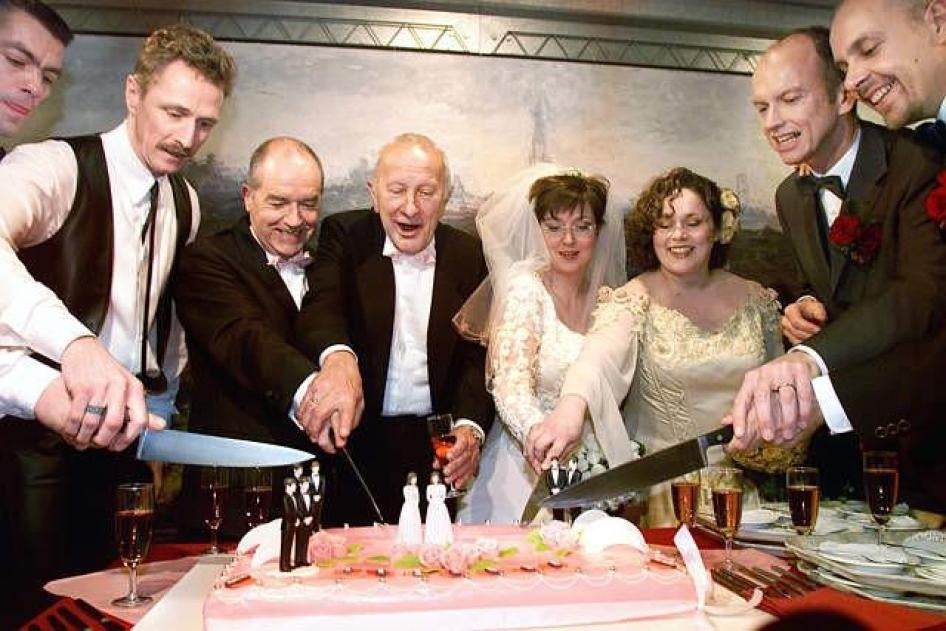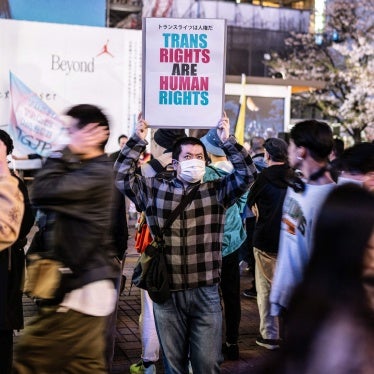|
Commentary
Australia can learn from Dutch courage on marriage equality
The eyes of the world are on Australia as politicians consider whether to support marriage equality
Published in:
The Sydney Morning Herald
Next week, a marriage equality bill is likely to be introduced in the Australian Parliament. It will no doubt produce the same kind of intense discussions and soul searching as in the 18 other countries that have passed these laws.
The first was the Netherlands. In 1994, I became a member of the Dutch Parliament and proposed introducing marriage equality legislation. Years of debate ensued.
At that time in the Netherlands, the main argument people made against marriage equality was that it would infringe on the rights of religious people who only recognise a marriage between a man and a woman. But leading Dutch lawyers and politicians responded that in the Netherlands there is a separation between church and state and that by changing the law, the government was broadening civil marriage. Freedom of religion means that religious denominations have the right to exclude same-sex couples from holding religious wedding ceremonies in their houses of worship. The state, however, is bound by principles of non-discrimination and equal treatment, fundamental rights that Australia has long recognised as well.
The first Dutch same-sex marriages took place more than 14 years ago, in 2001.
Since then, equal marriage has been accepted by a large majority of Dutch society. According to the 2014 national survey, 90 per cent of the Dutch population believes that gay men and women should be free to live the lives they want to lead and 78 per cent expressed their support for same-sex marriage.
The younger generation, those under 25, hardly realise that there was a time when civil marriage was not open to same-sex couples.
Even Dutch politicians who at the time vehemently opposed the same-sex marriage bill, including the centre-right Christian Democratic Party, have publicly changed their positions and are now in favour of equal marriage.
Not only in the Netherlands, but also elsewhere, conservative politicians have stood up in support of same-sex marriage. They realise that gay men and lesbians are part of society. They are our sons and daughters, our brothers and sisters, our fathers and mothers, our friends and neighbours.
Before Britain adopted its marriage legislation, Prime Minister David Cameron spoke at the Conservative Party's conference in Manchester in October 2011: "To anyone who has reservations, I say: Yes, it's about equality, but it's also about something else: commitment. Conservatives believe in the ties that bind us; that society is stronger when we make vows to each other and support each other. So I don't support gay marriage despite being a Conservative. I support gay marriage because I'm a Conservative."
Australia's push for marriage equality follows recent developments in Ireland and the US. Freedom of religion has also been part of the debate about marriage equality in these two countries.
In Ireland the government asked the people in a referendum whether they supported marriage equality. The issue of whether marriage equality would violate the rights of religious opponents was raised during the campaign. On May 22, the predominantly Roman-Catholic Irish population gave their answer. A clear majority of 62 per cent voted in favour. According to a poll published on July 15, 72 per cent of Australians support marriage equality.
On June 26, the US Supreme Court issued its decision on same-sex marriage in Obergefell v Hodges. The Supreme Court ruled: "No union is more profound than marriage, for it embodies the highest ideals of love, fidelity, devotion, sacrifice, and family […] They ask for equal dignity in the eyes of the law. The [US] Constitution grants them that right."
The US Supreme Court also examined the rights of religious believers who oppose marriage for same-sex couples and whether their freedom of religion would be violated by opening up civil marriage. Australians opposing marriage equality on religious grounds should take note of the court's decision, which found that, "religions, and those who adhere to religious doctrines, may continue to advocate with utmost, sincere conviction that, by divine precepts, same-sex marriage should not be condoned". Their freedom to hold those beliefs is not restricted and is protected by the US Constitution.
The eyes of the world are now on Australia. Like New Zealand, which legalised marriage equality in 2013, Australia is seen as a country that supports the right to equal treatment and the right to be free from discrimination. Now is the time for Australia's politicians to deliver on those principles and to vote in favour of marriage equality.
Your tax deductible gift can help stop human rights violations and save lives around the world.
Region / Country
Topic
Most Viewed
-
November 25, 2019
A Dirty Investment

-
June 3, 2025
“They’re Ruining People’s Lives”

-
January 25, 2024
“We’re Dying Here”

-
April 27, 2021
A Threshold Crossed

-
November 19, 2012
Losing Humanity




